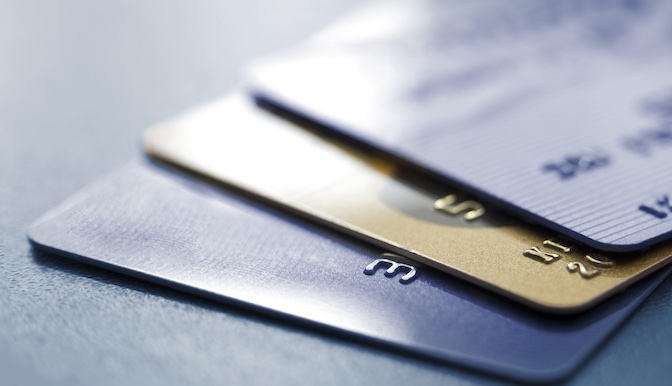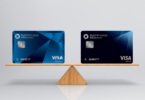If you have been paying attention to all the different credit card offers out on the market, they all seem to follow each other. Someone adds benefits, another bank adds similar, or even the same benefit. They always try to pull ahead every so slightly, but I think things could keep staying in this marginal improvement loop. For a couple of years now, I have been saying there is a way for banks to separate themselves with credit card rewards.
Next Era in Credit Card Rewards
Last year, Chase introduced possibly the hottest card on the market and the other banks are seemingly play catch up. The Reserve looks less favorable with a 50,000 point bonus and $450 annual fee.
The Reserve like other cards is a one size fits all card. It has the same bonus categories for every person. As “great” as the Reserve is, it doesn’t fit the bill for everyone. I think there are ways for other banks to call themselves “innovative” in dealing with their credit card rewards.
For customers, the benefits of these premium cards are fairly similar. The rewards of the cards are slightly different, but if you look at them many offer (similar) bonus categories that are comparable.
For banks to start separating themselves and to improve the customer experience (and maybe keep customers long term), they need to allow personalized credit cards.
Start allowing people to make a credit card that benefits their lifestyle and need! Currently, the closest option to this is probably the US Bank Cash Plus.
Letting Customer Control Their Card
The big news that came out over the last week or so, was the fact the American Express Platinum (personal) added a “great” benefit of Uber credits. Plus they were restricting the lounge access to 2 guest, on both the Personal and Business cards.
While doing this this increased all annual fees by $100, on the personal card. If you use Uber frequently, this was a win for you. If you travel with more than 3 people, clearly a loss for you. Either way, you probably just found another reason to cancel your card.
The take-a-way of this is some people benefit from this change and some don’t. This causes a problem for American Express as many people will be considering if they should cancel their card or not.
Now, what if American Express gave you the option to add the Uber benefit for $100, or any other benefit for a fee? What if you could select many options to personalize your credit card. One that gives you the options that let you maximize the card.
All the banks are vying for attention and want to be the top card in your wallet. At the same time, I think many people (myself included) would love to have one card that really met all my needs. This would have bonus categories that benefit me, while reducing the number of cards in my wallet.
Not only could this be a great way to make customers happy, but also produce long term customers. That’s what banks want, right? While banks try to produce long term and profitable customers. People want a card that earns high rewards, possibly have perks (like lounge access), and while keeping their fees low.
Cost on Banks
Now I am not an expert, but I highly doubt any of the banks are actually paying full price for the benefits on their cards. Do you really think American Express shelled out $200 for Uber credits and only raised the annual fee $100? I think not.
Banks aren’t going to do something that loses them money. The Reserve lowered Chase profits about $200 million. In the end, they made plenty of money, so don’t feel bad for them “losing” money. In the big picture, banks want you to use their cards, since they make money on the fees they charge the merchant.
I would feel confident to say the banks receive some sort of group discount. Banks have no problem offering these “benefits”, since a portion of people who have these high end cards don’t use all the benefits. In the end I would think the banks get a bulk discount and partners make money in the process.
Personalized Cards
Wouldn’t it be great if you had a bank of options to choose from when applying for your credit card? Plus, have the ability to make yearly changes to the card benefits.
The cards could have the same “base model” features, bonus categories, travel protection, purchase protection, and similar benefits.
Where you can start to customize these is the extra features, such as lounge access, rental car status, hotel status, TSA/ Global Entry/ CLEAR, etc. Pretty much all the benefits that add money to your annual fee.
Then have possible “buy up” options. This could include improving benefits already on the card, potential to add better bonus categories, or any basic option that could be improved upon by adding money.
Think of building a “perfect” credit card, like building a new car. You start with a base model and the more features you add, the more money it cost you. There could be a whole list of features to add. You could even add a travel credit, but since I figure this to be prepaying your own travel it wouldn’t get a discount.
New Way of Bonuses
Banks have been really tightening up on churners. I think we will see more restrictions by the end of this year. Hopefully, I am wrong.
If banks start allowing customization of your credit card, then they could start incorporating the size of the sign up bonus to the cost of your card. The more perks you add, the higher the fee and in the end the higher the bonus.
Although this seems unlikely, I wouldn’t think anything is off the table as banks try to reduce churners and keep customers for the long term.
Allowing Changes
As time passes, our credit card needschange as well. This could be due to a move, life event, or change in employment.
Currently, credit cards don’t allow for these changes. That is probably one of their largest downfalls, they are pretty inflexible for personal changes. Which is why you might need a handful (or more) to maximize your earnings for your spending habits.
If banks were to allow you to customize your card, then each year should be able to revisit your benefits and adjust accordingly. This could increase or even decrease your annual fee.
A good credit card should adjust to your needs over time. That is probably why many of us in the game apply for many cards(outside of the bonus).
Banks that allow flexibility could have the greatest success with this option. Not only could this allow banks to produce more long term customers, but could actually have customers who are happy with their rewards.
Conclusion:
Do I think banks will actually do this? Probably not.
I’ve thought for a few years that allowing people to personalize their credit cards could be the next big thing. This would make it easier for people who like credit card rewards and could benefit the banks.
In the end, the thought of being able to make my own card sounds awesome. Think of the best benefits of all the cards out there and now think about having them all on one card.
If you could customize your card would you? What type of perks would you add?
Don’t forget to Like me on Facebook, or Follow me on Twitter. If you have questions, comments or would like a topic, leave a comment. Thank you for reading!








I’ve always wondered why this isn’t happening. I think it would be a great thing and hope it does. I like several extras from different cards but there’s always something I can’t use or the fee is too high because it has too many things I can’t use . Allowing to choose would be fantastic! I’d like miles, global entry or other allowance, lounge access, companion tickets and easy ways to gain mile, points or hotel stays, flight upgrades….
Hey Gloria,
I’d like to see it happen too! That is a great list of perks as well, now the question would be, how much would you pay per year for that? 🙂
Thanks for reading!
Dustin
It’s an interesting take, and while AMEX may not be paying $200 to Uber (it could be rolled into their 2x AMEX MR contract, etc) – they are paying more than $550 to acquire and keep a customer. Sure, they won’t do anything to lose $, but a primary reason Chase probably lost money was because their acquisition cost / cost of card benefits was pretty high, even with he $450 annual fee to help offset that.
Hey Mordechai,
I agree that Amex is paying more than $550 to acquire a customer. If they don’t have benefits that work for the consumer, then they won’t keep them. Chase was also aggressive to take business from others. It’ll be interesting what “enhancements” they make when people start canceling at the end of year 1.
Thanks for reading!
Dustin
The main reason a $200 Uber credit doesn’t cost Amex $200 is because a lot of customers won’t use it. Same for a lot of benefits on these cards — they sound attractive, but plenty of customers don’t get much value out of them. That’s the point.
Hey Joe,
I agree, most won’t use it. If banks want to complain about not keeping customers, they need to re-evaluate their strategy. Big bonuses are great, but people will move onto next big thing if there isn’t a reason to keep using it.
Banks seem to want to shift from churner to long term customer. Making benefits that actually benefit the consumer is where they should start though.
Thanks for reading!
Dustin
Joe’s right on the point here. The reason that a lot of these benefits are cheaper than the normal cost is because of “breakage”. If you could pay a rate based on the benefits you want, most of us would only choose the ones they’d use, and then the $200 Uber credit would probably cost, well, closer to $200.
Hey Miles,
I agree with Joe above, but as banks make it a point to say they want long term customers, they need to give consumers a reason to use the card long term.
I believe Amex will see a large decline in their personal Platinum cards. Due to a benefit that most won’t use, in combination with a higher fee most can’t justify.
Thanks for reading!
Dustin
Companies market to millennials by appealing to their uniqueness, but I think credit card issuers are in an atypical market. Being able to customize a card sounds great to a consumer, yes, but it attracts the least profitable type of consumer–one who maximizes credit card rewards. From the issuer’s perspective, it attracts the exact type of consumer that issuers currently probably are seeking to eliminate or minimize (e.g., the majority of new Ink Plus applicants probably were spending exclusively on 5x categories). While I think Amex would be smart to target favorable offers towards highly profitable consumers (e.g., massive periodic spending bonuses to cardholders that redeem MR on Amazon or at McDonalds), I still don’t understand credit card issuers’ response to the problem churning poses to them and their design of reward structure to the public. I’m assuming sign-up bonuses previously were thought to train a consumer to get used to spending on a card and thus generate long-term spending, but they clearly realize that isn’t the case. Why are sign-up bonuses even offered? Credit card issuers should be aligning their incentive structures with their desired result (i.e., long-term, everyday spending). Why offer 50k for 5k of spend in three months? Do issuers really think that motivates long-term spend? Why not offer bonus multipliers based on annual spend? Why not increase the multiplier each year the cardholder has held the card? Why not offer a delayed 5x points/rewards for a month, if spending in each of the next four months increases month-after-month? These are just possibilities, but I think that is the future.
Hey Esdot,
Do we (Churners, bonuses enthusiast) not use many cards for this reason though? The cost in bonuses for banks to offer a card we use at a particular category is the same idea. We are just piecing together the benefits we want. It’s cumbersome, no?
The Ink Cash still has 5x category, just a lower threshold and as banks try to reduce the number of people MSing, this will decrease as well.
The issue I’d say with churners is the fact we earn hundreds (possibly thousands) of dollars in rewards. Use those rewards, then move on. The banks don’t recover the cost it required to acquire us as a customer. The bonus is offered to entice us to apply. Probably in the hopes you mismanage your money and pay $$$$$ in interest.
I agree and like your thoughts on how things could go with multipliers and benefits as your relationship lengthens with a bank. I think that could be something they consider in the future.
Thanks for reading!
Dustin
You’ve described an a la carte offering, which doesn’t usually work out in the consumer’s favor. Bundling benefits like the Uber credits works because people will do mental math about the full value it could provide even if they end up not using it fully.
Cable TV: I don’t need 200 channels! –> Now I need Hulu+Netflix+Amazon+SlingTV
Airlines: Make tickets cheap! –> pay extra for seat assignments + carryon + food + luggage
Hey Steve,
I am describing an a la carte offering. The bundling benefits like Uber don’t encompass the need for all of their consumers. I agree with you that most won’t end up using all the benefits on most of their cards.
I’m not sure I agree with the examples though. For example, I don’t have cable, because there are options like Netflix. Meets my needs and I don’t need to pay $$$$ for cable. I customize my own need for shows with better options that fit my need.
Thanks for reading!
Dustin